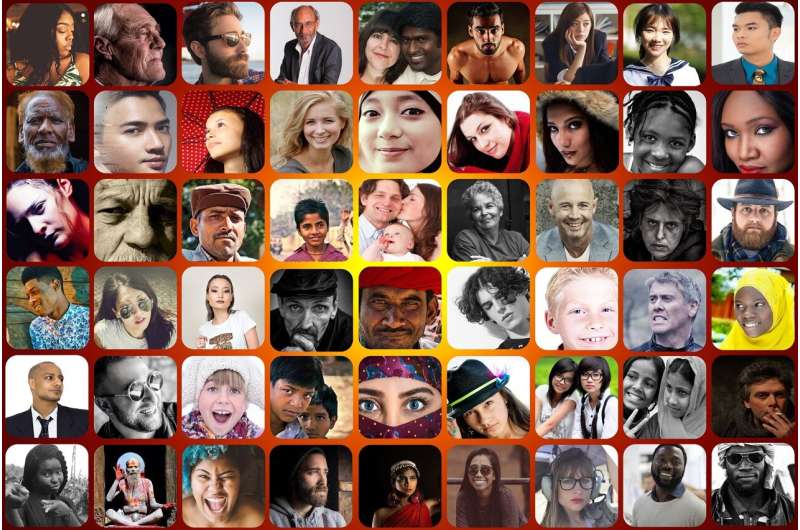Americans prefer a more diverse society, argues a new study

Stephanie Baum
scientific editor

Andrew Zinin
lead editor

At a time marked by debate about identity, migration and national cohesion, a new study brings a surprising message: Most Americans want a more ethnically and religiously diverse society than the one they live in today.
The study, in the journal Ethos, is based on a representative questionnaire survey of 986 American citizens. Participants were asked to assess both the actual and ideal composition of ethnic and religious groups in the United States.
"We wanted to investigate whether the idea of a multicultural United States still has popular support—and it does, to a large extent," says Séamus Power, lead author and associate professor at the Department of Psychology at the University of Copenhagen.
"Two-thirds of participants wanted a more ethnically diverse United States than the current one, and more than half wanted greater religious diversity," he adds.
White Christians also want diversity
The study shows that even among white Christian Americans—the group often mentioned in connection with the theory of "the great replacement" and fears of demographic change—there is a majority in favor of increased diversity.
"It is important to understand that the idea of a great replacement does not reflect the majority view. Our data shows that only 1.1% want an ethnically homogeneous United States, and only 3.2% want a religiously homogeneous society," Power points out, "although we should not underestimate the significance of these extreme views when they are scaled up to the entire population of the United States," he adds.
The study also shows that Americans generally overestimate the proportion of minority groups and underestimate the size of the white and Protestant population. Nevertheless, the desire for diversity is clear—and it applies across political and religious divides.
"The multicultural ideal is not just something that exists in academic circles or among minorities. It is a fundamental part of how many Americans understand their country," says Power.
More American than apple pie
The researchers behind the new study work at the University of Copenhagen, Yale University and the University of Chicago. They believe that their findings can contribute significantly to the often polarized debate on identity and belonging in the United States.
"It is crucial to the debate to know that it is not the desire for uniformity, but the acceptance of diversity that characterizes Americans' ideal image of their nation. Multiculturalism is perhaps more American than apple pie," concludes Power, referring to the study's title: "Is multiculturalism as American as apple pie? A survey of attitudes toward ethnic and religious diversity in the United States."
More information: Séamus A. Power et al, Is multiculturalism as American as apple pie? A survey of attitudes toward ethnic and religious diversity in the United States, Ethos (2025).
Provided by University of Copenhagen




















